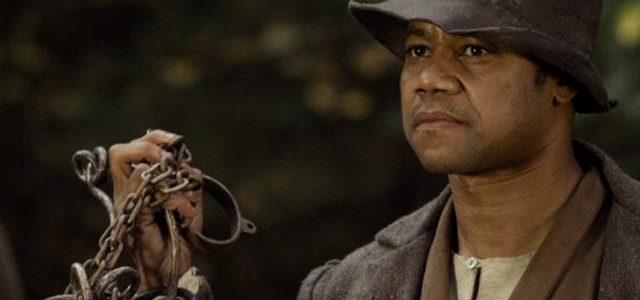My first hint that the launch of the film Freedom was going to be something outside of the ordinary came from the invitation I received – or lack of it. The second hint was the screening itself. Walking in, the seats were filled with people who looked more like Churchgoers than film critics – which is exactly who they were.
Freedom builds its tale around four slaves who escape from a Virginian plantation in 1856. They journey to the free North of the fragmented states of America. Cuba Gooding Jnr. stars as Samuel, a father and husband determined to fight his way to liberty. His mother, Adira (Phyliss Bash), is a woman of faith who believes Samuel has to escape from a greater slavery than his chains. As their journey progresses, it becomes clear her son is caught up in a very Christian tale.
Hollywood has produced many films about this dark period of history – The Colour Purple, Amistad, 12 Years A Slave – but Freedom has restored its faith-shaped context.
The film industry woke up with a jolt to the potential of faith-based productions with the 2004 release of The Passion of the Christ. Its $30 million budget garnered a $604 million return worldwide, making it the most successful independent production of all time. But try as it might, Hollywood has been unable to bottle that lightning. Faith-based stories like The Blind Side, apocalyptic action movies like The Book of Eli and re-tooled Bible stories like Noah all represent this desire to sell some aspect of Christianity to Christians. But the returns have never been spectacular, mainly because the movie-makers have misunderstood their audience.
It’s not enough for a story to convey the essence of a Christian life or a Bible story.
This is not fantasy, but real life…
Christian viewers look at faith-focused storylines differently to other demographics. They see stories like these as opportunities to affirm what they believe. They sit in their cinema seats listening carefully, rather than letting go. And that, in part, explains why they can perversely be among the first to ridicule a faith-based production. It’s not enough for a story to convey the essence of a Christian life or a Bible story. This is not fantasy but real life to the ticket buyers, so scriptwriters have little margin for error. And so strong Christian franchises like The Narnia Chronicles falter because instalments like Voyage of the Dawn Treader are criticised for drifting too far from their literary roots.
But are Christian audiences in danger of forgetting what films are for? Freedom has shortcomings that are hard to deny. But the film does achieve what should be considered its primary goal: it makes us feel differently about a life built on God.
Freedom corrects the idea that a general love of humanity was enough to bring about the end of the slave trade. It makes you respect the bravery of little men who put God first, even in the face of guns. Believers are no longer baffled do-gooders but bulldogs. And that, especially, is why Christians should be prepared to back Christian cinema.
The library is where to go to find facts; the Bible, the ultimate source of our knowledge of God. Cinemas, though, are where we learn how to feel about a subject. This is the question that should be levelled at every faith-based story: does it lead us to feel about God the way we should? Then that’s enough to be getting on with. One good conversation will fill in the rest.
Mark Hadley













